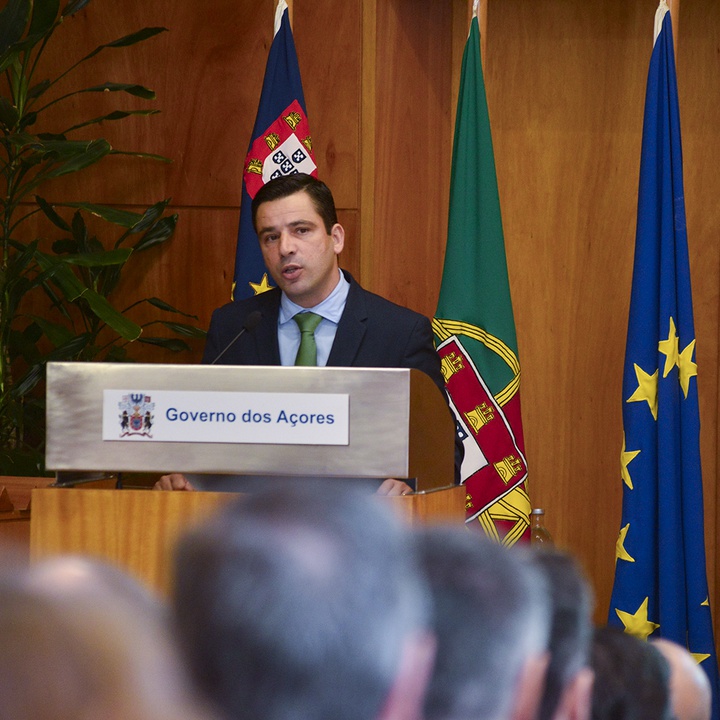Text size:
News

Government of the Azores promotes final conference of the Roadmap for Carbon Neutrality of the Azores
Nov. 13, 2023
The Regional Secretary for the Environment and Climate Change, Alonzo Miguel, presided today to the final conference of the Roadmap for Carbon Neutrality of the Azores at the auditorium of the Regional Civil Engineering Laboratory, Ponta Delgada.
According to Alonso Miguel, this Roadmap, the preliminary version of which was presented today, based on the definition of narratives and socio-economic development scenarios for the Region, “aimed to establish a clear strategic vision and explore cost-effective, technologically feasible and economically viable trajectories in various economic and demographic growth scenarios, in order to achieve carbon neutrality by 2050”.
“In practice, this instrument is a key element in creating more accurate metrics for net greenhouse gas emissions and, based on this information, defining the strategy, mitigation measures and efforts needed to decarbonise each of the most relevant sectors so that the Azores can follow a successful path towards carbon neutrality,” he explained.
The Regional Secretary pointed out that this planning process included various moments of involvement and interaction with the different stakeholders, such as an online survey on companies' attitudes towards carbon neutrality, participatory workshops to discuss cross-sector decarbonisation options and public sessions to debate sustainable financing options, in a systematic approach aimed at ensuring that the Autonomous Region of the Azores achieves its climate goals in an effective and collaborative way.
The different scenarios outlined within the scope of this roadmap were based on data made available by IRERPA for 2022, with reference to 2020, according to which “the Azores are characterised by four main sectors responsible for the majority of emissions, and on which decarbonisation efforts should be made, namely the 'Energy', 'Mobility and Transport', 'Waste and Wastewater' and 'Agriculture, Forestry and Other Land Uses' sectors,” he said.
According to Alonso Miguel, total greenhouse gas (GHG) emissions in the Azores in 2020 reached 1.72 Mt CO2eq, with the Energy sector, which includes Mobility and Transport, accounting for 49.2% of emissions, Waste and Wastewater for 6.6% of the total, while Agriculture, Forestry and Other Land Uses accounted for 41.7% of the Region's total emissions.
“In this context, based on the work carried out under this roadmap, in a carbon neutrality scenario, it was possible to ascertain that the most cost-effective bet is to concentrate around 50% of the necessary effort to reduce greenhouse gas emissions in the transport sector,” he said.
Alonso Miguel clarified that “the Agriculture and Forestry sector will have to comprise around 36% of the total emissions reduction effort required, while the Energy sector will have to concentrate around 12.5% of the reduction effort, with the waste and residual water sector accounting for around 1.5% of this effort”.
“In order to achieve the decarbonisation envisaged for each of the sectors, a wide range of proposed measures will be analysed, presented as a result of the work carried out, relating, for example, to a substantial increase in the production and use of renewable energies, an increase in energy efficiency, electrification of transport and the use of biofuels, changes in livestock farming, especially a reduction in the number of dairy cows, and an increase in carbon sinks through reforestation,” he explained.
According to the Regional Secretary, “in addition to the Roadmap itself, this project also includes the study for the creation of new competitiveness clusters for carbon neutrality; the development of sectoral and territorial good practice guides for carbon neutrality and the study of fiscal instruments for carbon neutrality.”
The Roadmap for Carbon Neutrality of the Azores will be finalised by the end of 2023 and will be subject to a public consultation process, followed by consideration and approval by the Council of Government.

